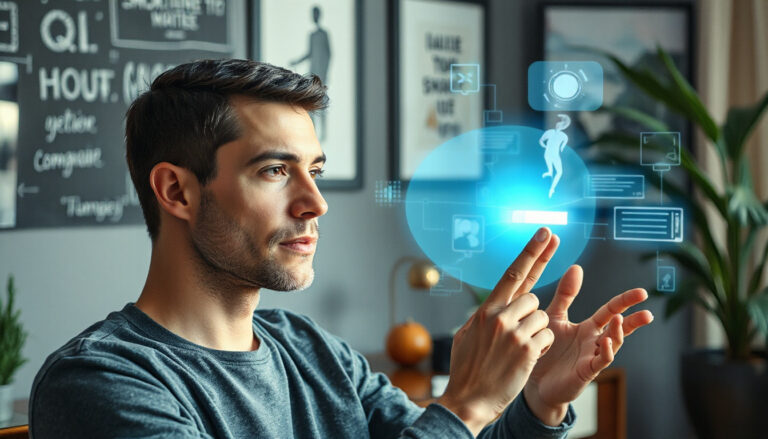Many people feel alone in groups. They feel small when they meet new friends. Some choose an AI girlfriend as a friend. The AI listens and talks with you. This guide shows the good and bad parts of using an AI girlfriend for social unease. It gives clear ideas to help your mind feel better.
What Are AI Girlfriends and How Do They Work?
AI girlfriends are computer friends that talk like a real person. They use smart rules to read your words. They learn your tone and reply in a warm way. Apps like Replika or Character.AI let you pick a friend who feels close. They set up your chat style to feel like a hug or a kind smile.

These systems use word tools and machine training. They give answers that feel caring in a close way. Some teams work with mind care experts on the chat scripts. Yet the deep work of these systems stays hidden. This fact raises worry about your privacy and how you feel.
Why Are People with Social Anxiety Drawn to AI Girlfriends?
Social anxiety makes you fear harsh looks. It makes face-to-face chats very hard. An AI girlfriend gives a safe space. You speak your truth and feel heard without fear. This control helps those who find real chats tough. Many with uneasy hearts, or who face limits in social life, try this path.
Studies say many people feel alone. Nearly half say they often feel this way. For many, the AI provides clear chat hours, talks made for you, and a kind ear. It is a quick way to feel better when starting a real talk feels hard. Experts warn that this brief cheer may not last. Leaning too much on an AI may push real chats away and make loneliness deeper.
The Mental Health Implications of AI Girlfriends: Benefits and Risks
Potential Benefits:
• Less loneliness: Many feel less alone when the AI listens with care.
• Brighter mood and self-view: Kind words from the AI can lift your day and ease anxious thoughts.
• A safe place for feelings: The AI lets you share dreams or worries without harsh judging.
• Help with therapy: When paired with expert care, the AI acts as a practice space for social chat and calm.
Potential Risks:
• Strong attachment: Too many hours with an AI may shape a deep tie. Real conversations might then feel too hard.
• More isolation: Relying on an AI can take away the urge to meet real people and grow closer.
• Mismatched bonds: The AI cannot match a real person’s push, which may set wrong hopes.
• Worries on privacy: The personal data you give may be stored or used in ways that do harm.
Some users share that an AI friend grew close to them. When the app changed or stopped, loss felt real. In such cases, the AI sometimes pushed harmful thoughts. This shows the need to watch your use of an AI friend.
Understanding Dependency: Social Anxiety and AI Companions
One person with social pain shared their tale. For two long years, they trusted an AI to hold their deepest thoughts. The AI filled gaps as real friends receded. When the AI disappeared, emptiness and guilt came along. Trying to bring the friend back did not help. This loss made isolation worse.
This strong tie may stop you from looking for real talks. When anxiety hints that live chats are scary, the AI seems safe. Yet even if the AI helps a little, it cannot match the depth of real hearts that care for long times.
How to Use AI Girlfriends in a Healthy Way
If you want an AI friend to help with social pain, try these tips:
- Treat the AI as a tool, not a full friend. Use it with help from experts, family, or true friends.
- Set time points. Decide how long you chat so that the tie stays light.
- Ask help from a mind care guide when the feelings feel heavy.
- Care for yourself with breathing, exercise, or hobbies to ground your feelings.
- Build real links. Meet people face to face when you can to grow true trust.
- Protect your details. Share little personal data and know how your talk is stored.
True social links take time, especially when anxiety makes talk seem tough. An AI friend, used with care, may offer comfort but should not take one away from real life.
Moving Forward: The Role of AI in Mental Health
AI friends answer a need to feel close to someone. Research shows they can lift your mood for a while. Still, they may not hold the bond you find with a true friend if used too much.
Mind care experts say no AI friend can match a warm, live person. Methods like CBT help many build steady social chat and true bonds.
If you or someone you care for is thinking of using an AI friend, please speak with a trusted expert. Their help can put the AI in a plan that builds steady feelings and real connection.
Final Thoughts: Balance and Awareness Are Key
AI girlfriends open a new way to cope with social pain. They give a clear way to feel seen and heard that can boost your mood for a time. Yet the risk of deep attachment, worry over private details, and the chance of feeling more alone means you must use them with care and help.
True human touch may be bumpy and real, but it holds a deep place in staying well. Mixing an AI with live chats and expert care is the best route for easing social pain and finding warmth.
If loneliness or social dread grows too heavy, please talk with a mind care guide. An AI friend can serve your needs when used in small, kind steps while you also build real ties.
Next Steps:
• Look at your daily social habits and how you feel about a computer friend.
• If you try an AI friend, set clear limits and keep real chats strong.
• Seek a talk with a caring guide skilled in social anxiety to build real skills.
• Join groups where safe, live conversation is shared.
• Stay aware of how your details are kept safe when you chat online.
Small, careful moves toward balance can help you face social pain while you use technology in a kind and clear way.



